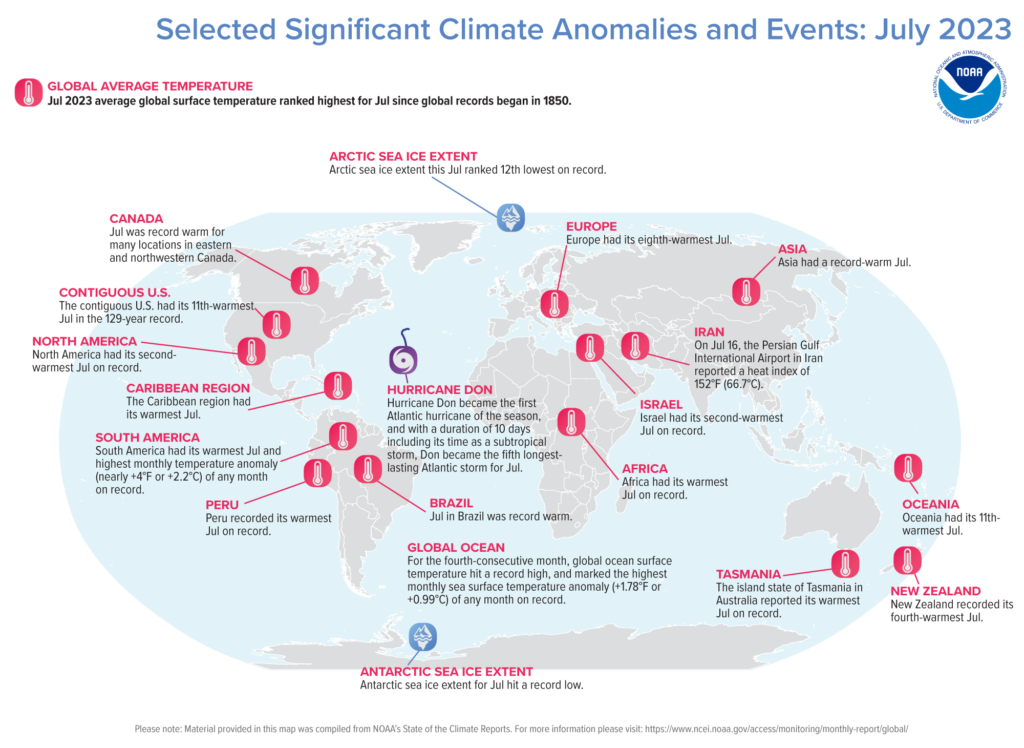Record Shattering: Earth Had its Hottest July in 174 Years
Posted
Last Updated
By noaa.gov.
Global sea surface temperature hit record high for 4th-consecutive month.
Earth just roasted under its hottest July on record, according to scientists from NOAA’s National Centers for Environmental Information (NCEI). For the fourth-consecutive month, the global ocean surface temperature also hit a record high. Here’s a closer look into NOAA’s latest monthly global climate report.
Climate by the numbers: July 2023
The average global surface temperature in July was 2.02 degrees F (1.12 degrees C) above average, ranking it as the warmest July in NOAA’s 174-year record. Because July is the globe’s warmest month of the year from a climatological perspective, July 2023 was also likely Earth’s warmest month on record.
July 2023 was the first time an average July temperature exceeded 1.8 degrees F (1.0 degree C) above the long-term average. Also of note, last month was 0.36 of a degree F (0.20 of a degree C) warmer than the previous July record from 2021. July 2023 marked the 47th-consecutive July and the 533rd-consecutive month with temperatures above the 20th-century average.
For the fourth-consecutive month, the global ocean surface temperature hit a record high as El Niño conditions that emerged in June continued into July. Globally, July 2023 set a record for the highest monthly sea surface temperature anomaly — which indicates how much warmer or cooler temperatures are from the long-term average — of any month in NOAA’s climate record, with an anomaly of 1.78 degrees F or 0.99 of a degree C. On July 13, NOAA’s Climate Prediction Center issued a statement announcing a greater than 95% chance that El Nino will continue through winter in the Northern Hemisphere.
The year to date (YTD, January through July)
The first seven months of 2023 ranked as the third-warmest such YTD on record, with a global temperature of 1.85 degrees F (1.03 degrees C) above the 20th-century average of 56.9 degrees F (13.8 degrees C).
According to NCEI’s Global Annual Temperature Outlook and data through July, it is virtually certain (> 99.0%) that 2023 will rank among the five-warmest years on record, with a nearly 50% probability that 2023 will rank as the warmest on record.
Continue reading at noaa.gov.

